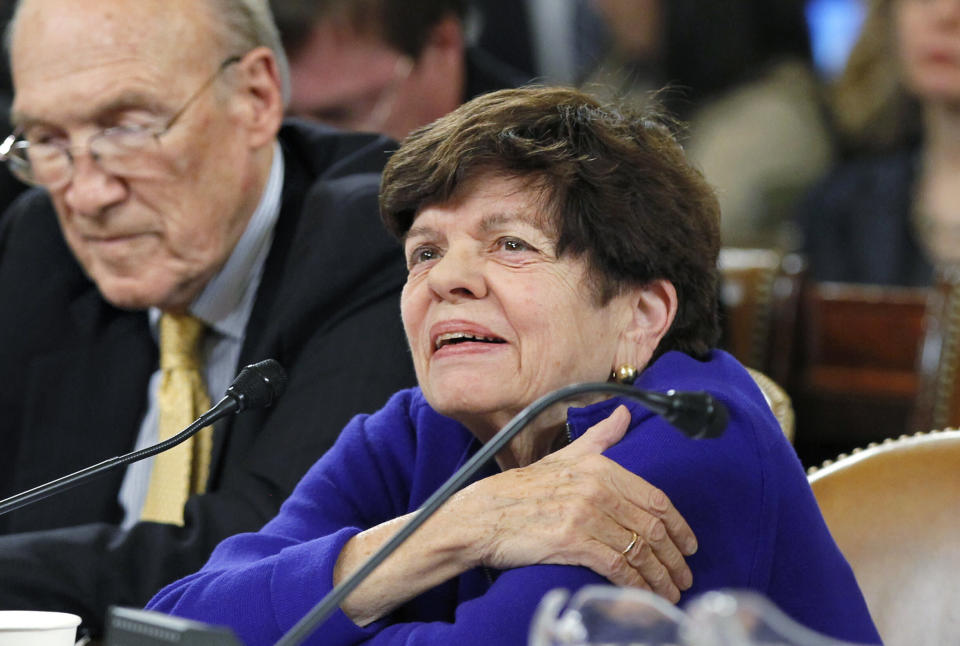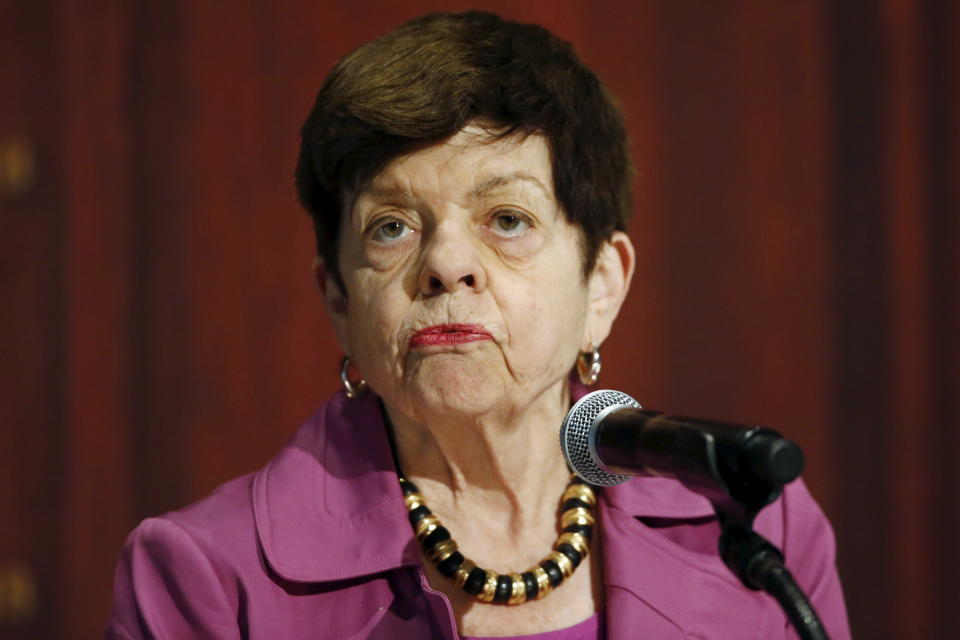Alice Rivlin, trailblazer in the economics field, dies at 88
Alice Rivlin, former head of the Office of Management of Budget, and vice chair of the Federal Reserve Board, died of cancer at the age of 88 on Tuesday.
Rivlin, known for her penchant for budget economics, also headed the Congressional Budget Office as its first ever director in 1974 and left a lasting imprint on the way that the U.S. government approaches funding.
Rivlin also helped pave the way for women in the economics field.

“To women in economics, including me, Alice was a mentor, a role model, and an inspiration,” said Janet Yellen, the first woman to ever hold the position of Fed chair.
Budget surplus
Rivlin is perhaps best known for her efforts to balance the government budget, an approach that she developed during her time at the Congressional Budget Office between 1975 and 1983. As its first ever director, Rivlin was tasked with establishing the CBO’s culture for nonpartisan analysis of the budgetary implications of legislation.

Rivlin said her work at the Congressional Budget Office was her “most important job, by far,” and was proud of how the CBO remains an important part of the lawmaking process in Washington, D.C.
“It is a very different experience to start a new organization from scratch, without many guidelines, and figure out what is it supposed to do and how we hire the people to do it,” Rivlin said in a biographical interview with Fed staff in 2010. “We were dealing with pretty nitty-gritty stuff.”
In a statement, current CBO Director Keith Hall said Rivlin left a “commitment to providing objective, nonpartisan information to help the Congress make effective budget and economic policy.”
In the Clinton administration, Rivlin transitioned from a policy-scorer to a policy-maker.
From 1993 to 1996, Rivlin served in the Office of Management and Budget, helping the budget deficit eventually flip to a budget surplus as a result of dual efforts to raise taxes on the upper class and cut spending on certain government programs.
Paving the way
In 1996, Rivlin moved on to the Fed board as vice chair under Alan Greenspan.
One of Rivlin’s first observations at the Fed was her under-appreciated knowledge of budget economics. In 1998, her work at the OMB finally flipped the budget to a surplus, despite skepticism from Fed staff that the government could balance its books.
“They thought it was unlikely. I remember they thought they knew more than I did about the budget, and that these spendthrift congressmen were going to break their own rules,” Rivlin recalled in the 2010 interview. “They were going to spend it, and we’d never get to balance.”
Rivlin, who ultimately left the Fed in 1999, had faced skepticism during most of her career and, prior to that, during her studies.
As a student at Harvard University in the 1950s, Rivlin joined the doctoral economics program after being denied by the school of public administration (now the Kennedy School) because she was a “woman of marriageable age.”
The economics program, where about 5% of the department were women, was not much easier. In an interview with the American Economic Association in 1998, Rivlin recalled that she had to bow out of teaching an introductory economic course because she was expecting a baby. Her male replacement sought to nullify the whole section’s first semester grades “since no woman could teach economics adequately.”
“In retrospect, the amazing thing was that the women were not more outraged,” Rivlin said. “I think we thought we were lucky to be there at all.”
After the Fed, Rivlin served as a chair of the District of Columbia Financial Control Board and returned to the Brookings Institution, where she spent a portion of her early career.
“As someone committed to economic policymaking, one could hardly ask for a better hero,” said Douglas Elmendorf, dean of public policy at the Harvard Kennedy School of Government and former Brookings scholar.
Rivlin is survived by her husband, three children, and four grandchildren.
—
Brian Cheung is a reporter covering the banking industry and the intersection of finance and policy for Yahoo Finance. You can follow him on Twitter @bcheungz.
Trump to Fed: Cut rates and help us win the trade war
Inflation expectations dip as Fed grapples with stimulating prices
What a higher education tech company tells us about a tightening labor market
NY Fed: Yield curve shows 27% chance of recession in the next year
Economist John Taylor: Interest rates should go to around 3%
Congress may have accidentally freed nearly all banks from the Volcker Rule
